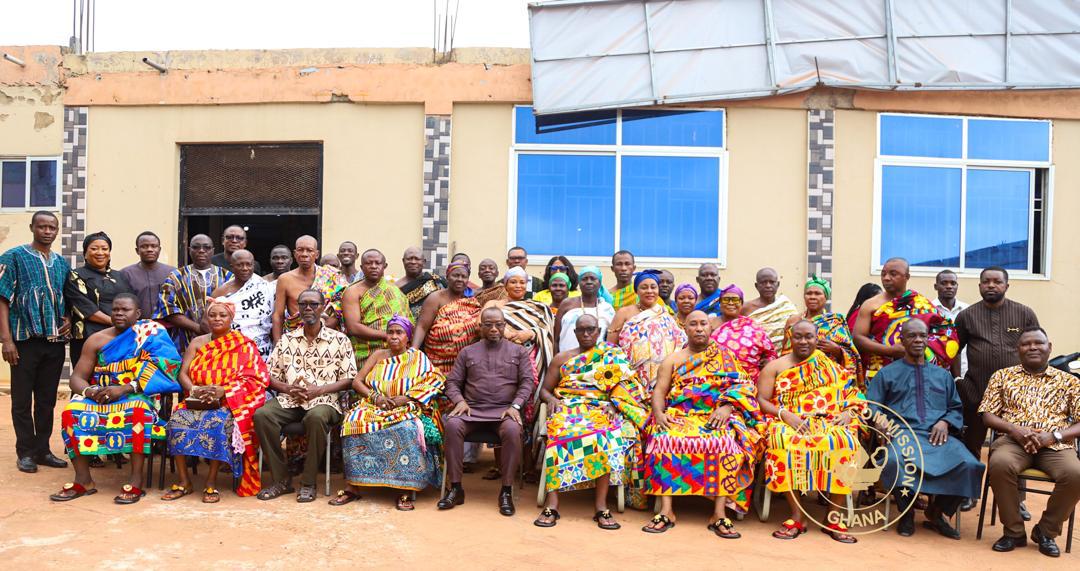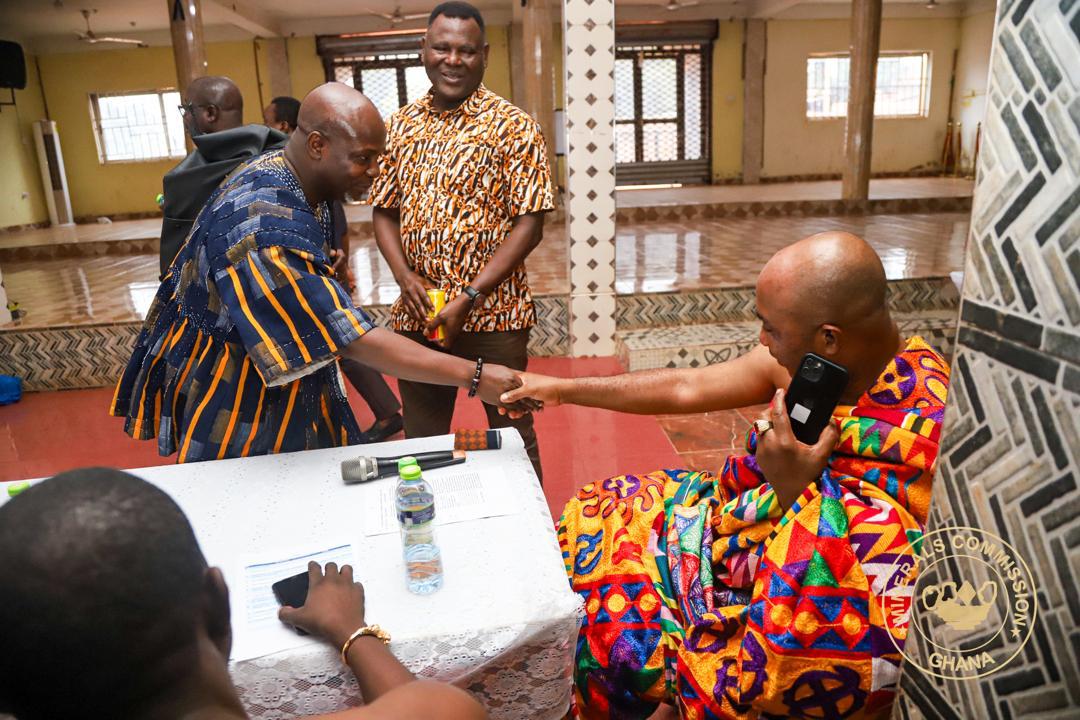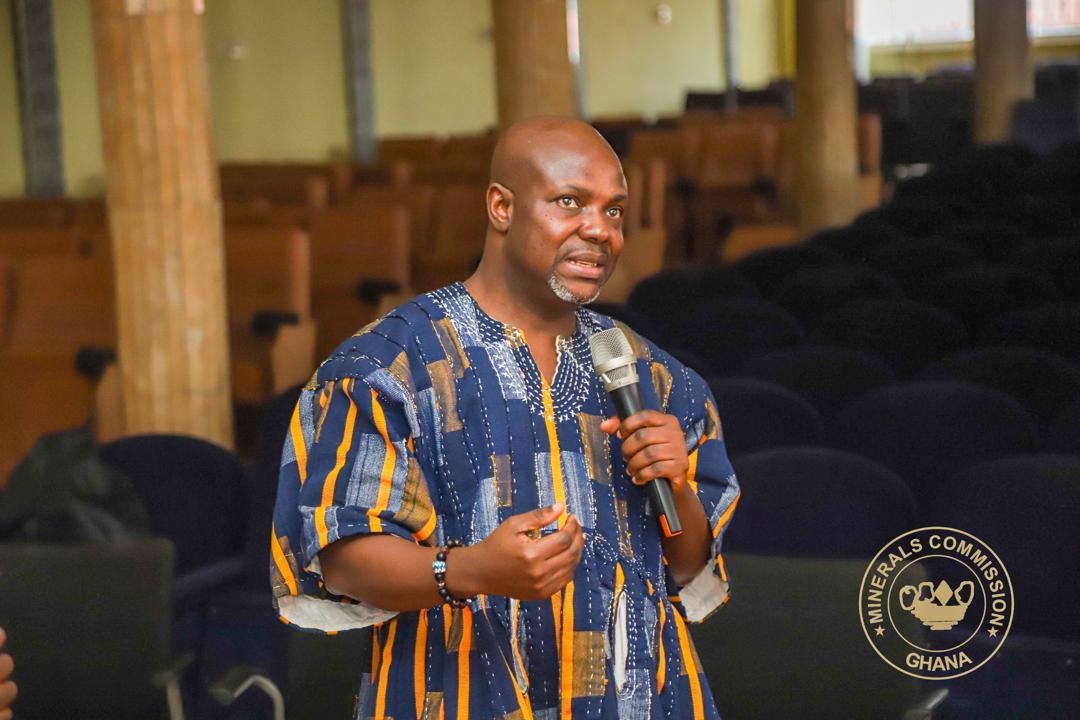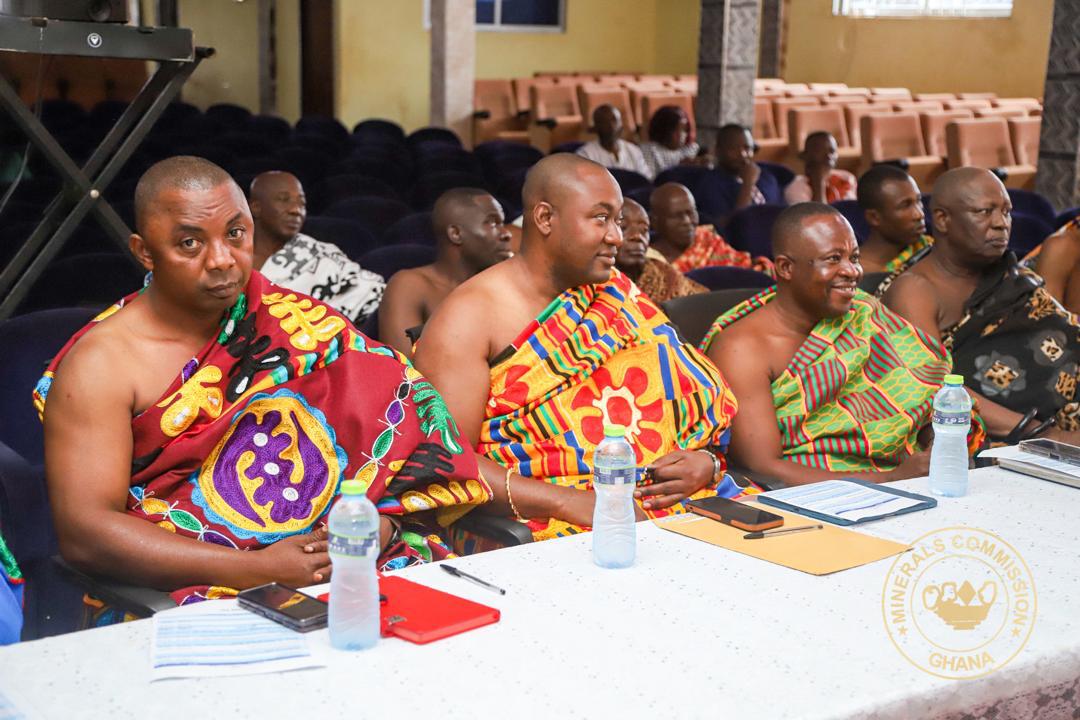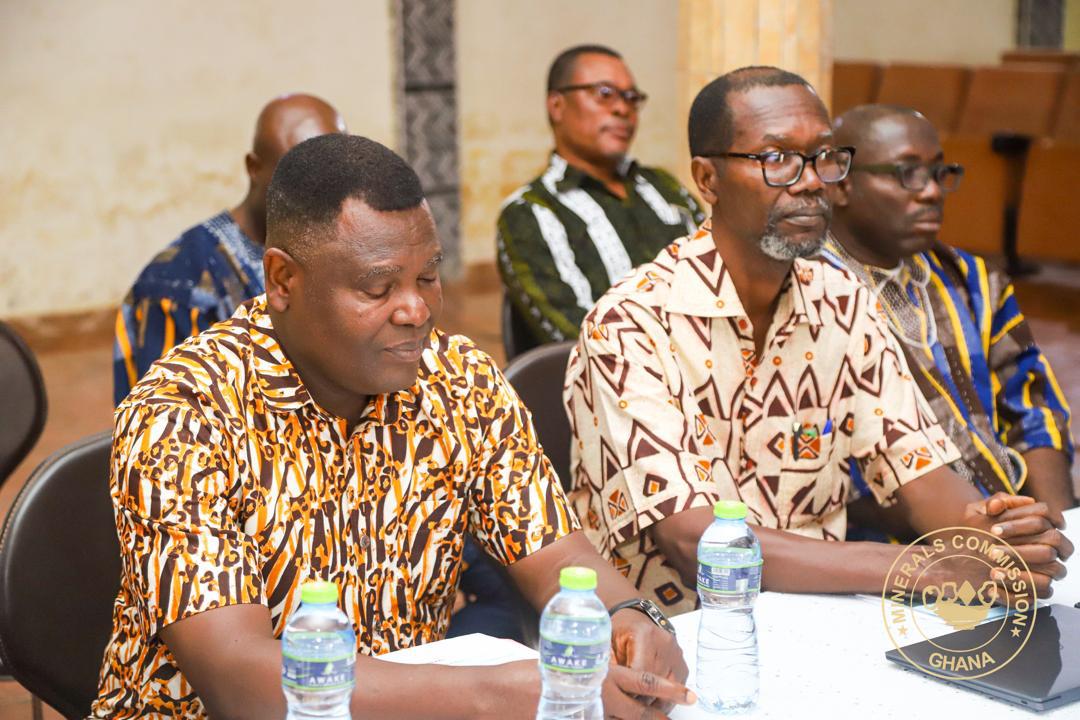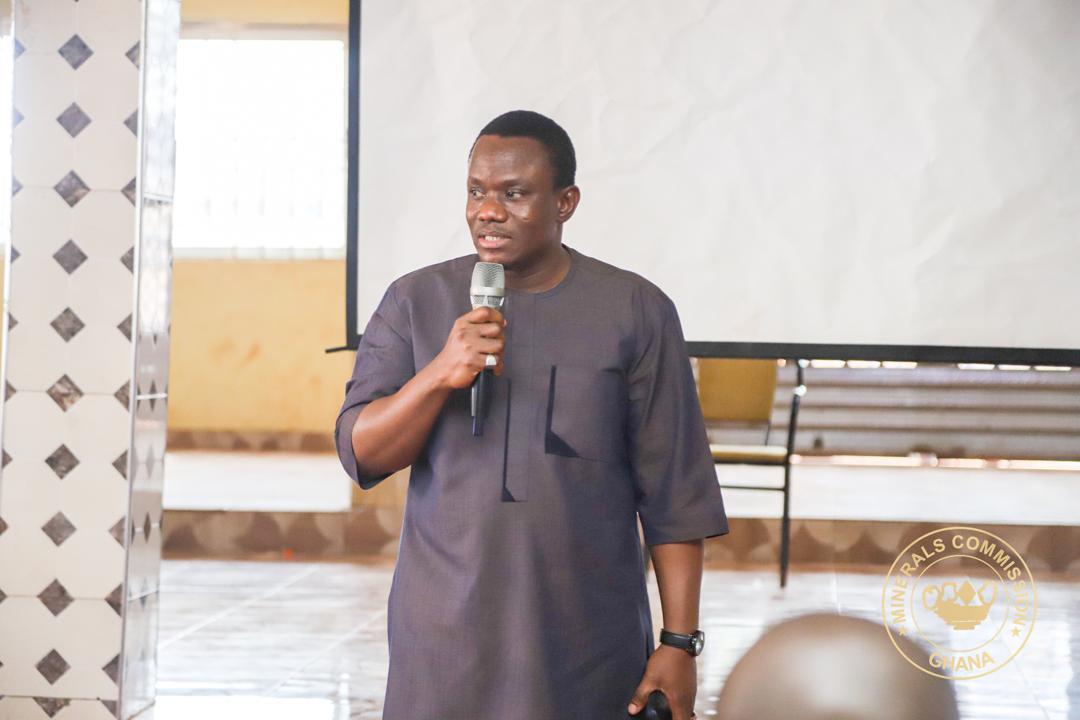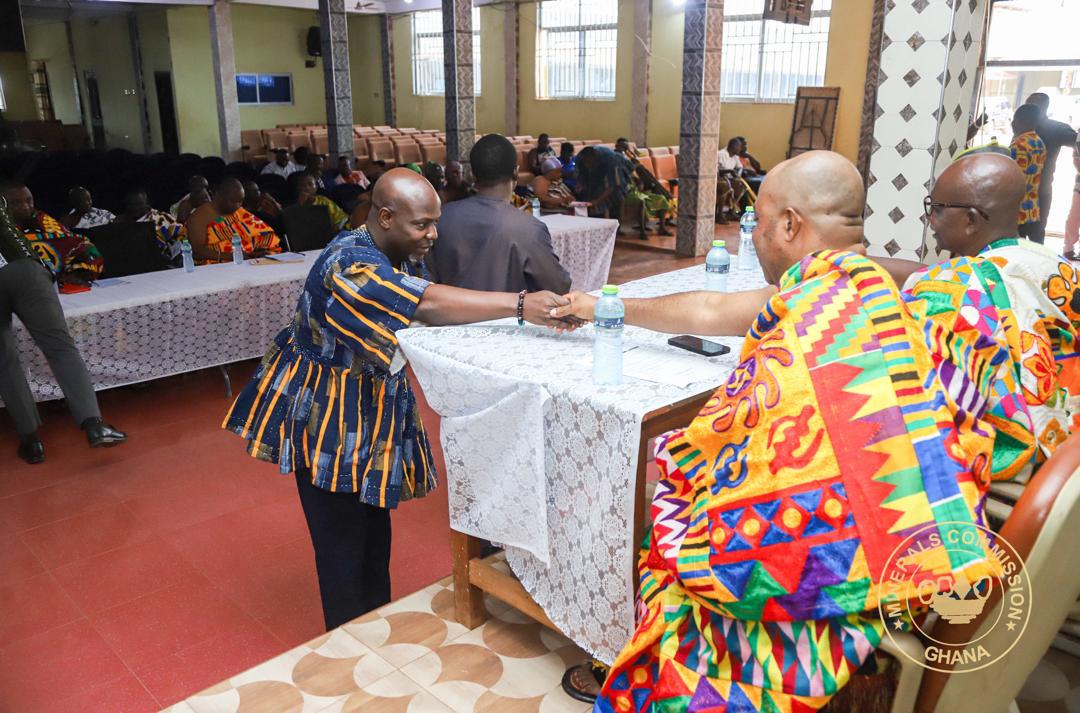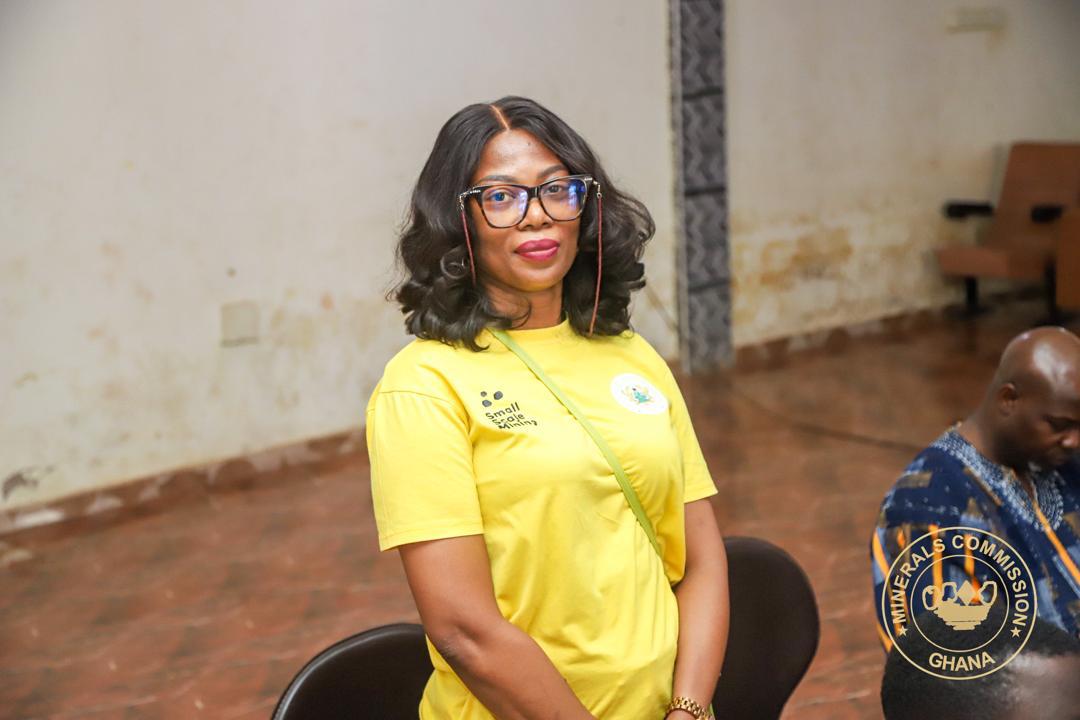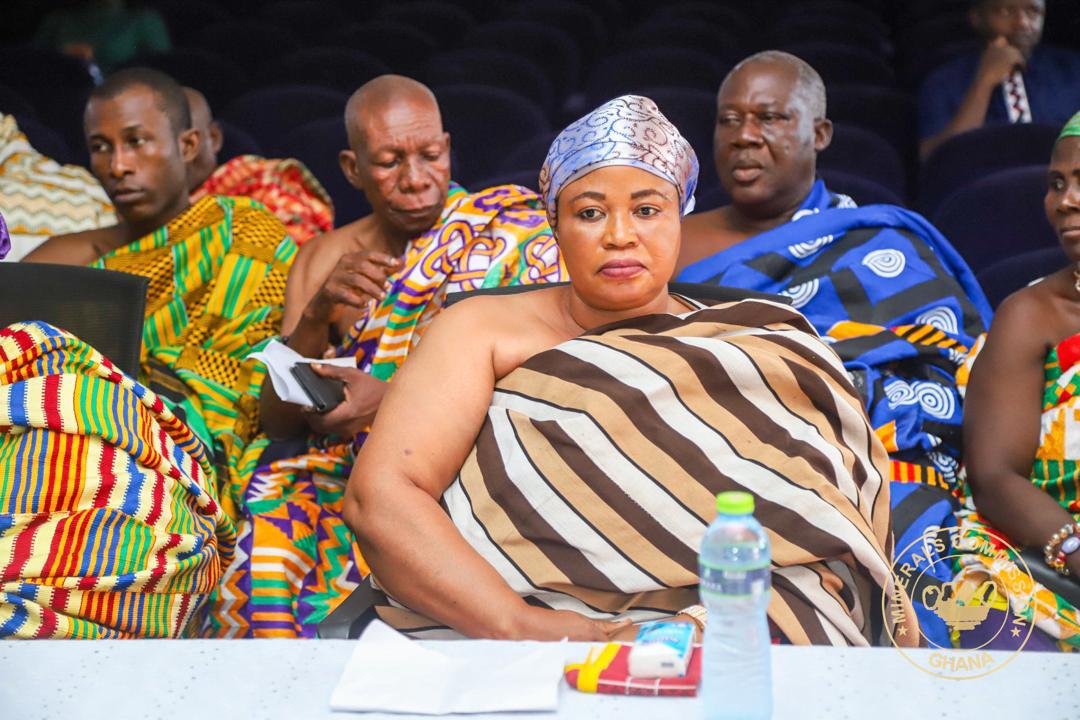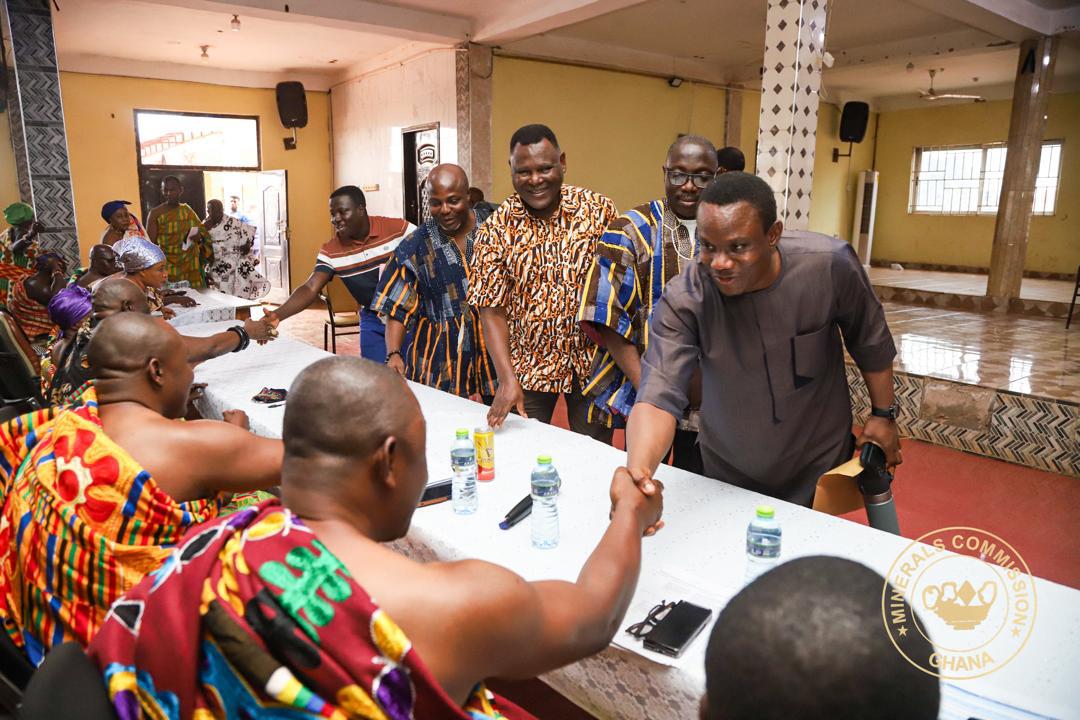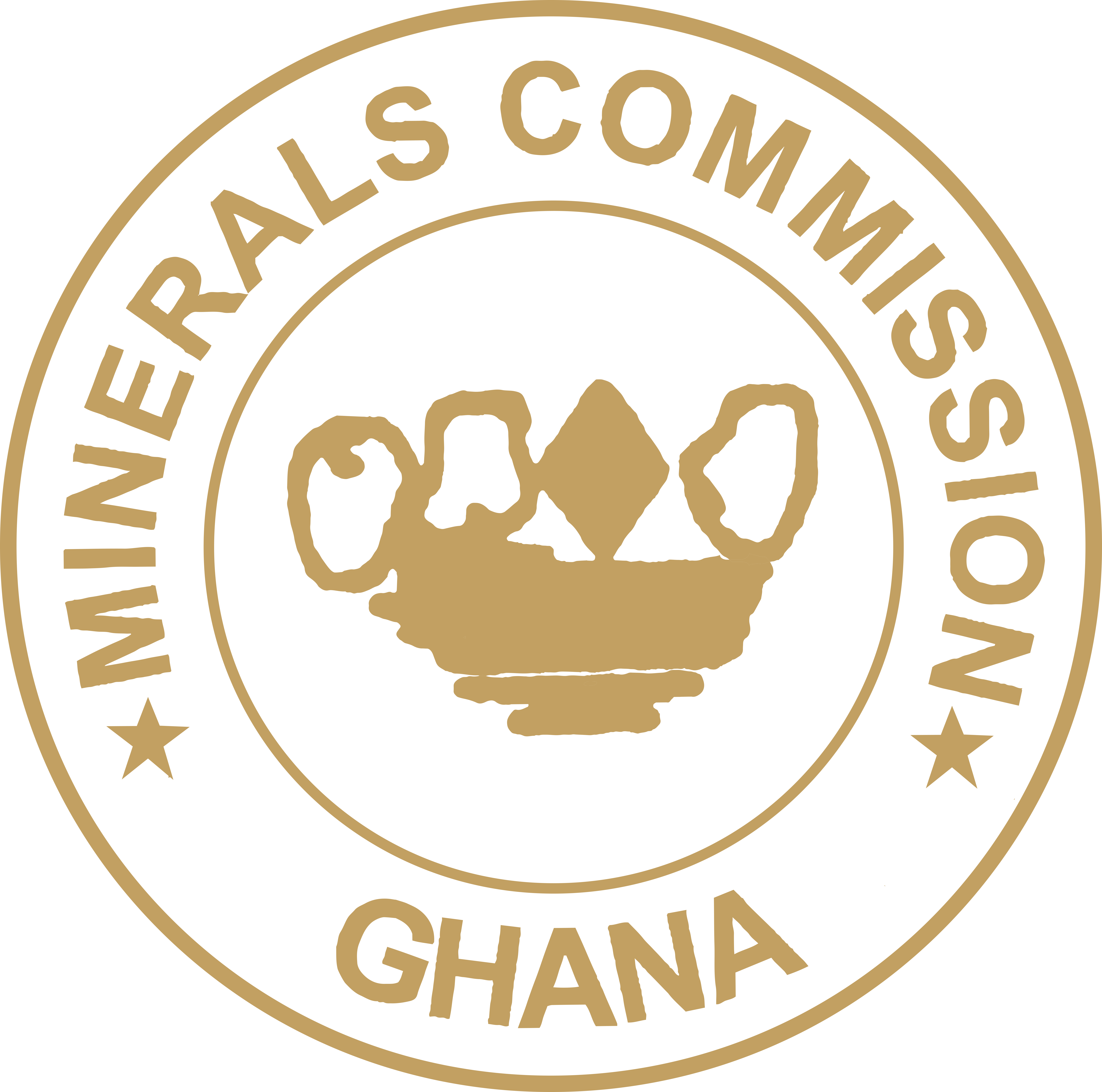Review of Ghana’s Minerals and Mining Policies and Legal Regime, Bono East Region House of Chiefs Calls for Streamlining Royalty Disbursement.
On August 7, 2025, at a Regional consultation meeting organized by Minerals Commission with the Bono East Regional House of Chiefs, the Regional Minister, Hon. Francis Owusu Antwi, emphasized the need for deepened collaboration among key stakeholders in Ghana’s efforts at combating the devastating effects of illegal mining, popularly known as galamsey. Hon. Antwi made this call during his opening remarks, stressing the importance of responsible and sustainable mining practices and urged traditional authorities to partner with the government to protect the environment.
Hon. Antwi assured that the government is committed curtailing galamsey activities through the introduction of interventions that would limit foreign participation, and reserve small-scale mining for only indigenes. He called on the Regional House of Chiefs to lead the charge in resolving chieftaincy issues in the region, which he believes will promote peace and stability necessary for development.
The Minister also appealed to traditional authorities to ensure that lands given to investors for mining or other purposes are used for the purposes. He emphasized the need for environmental stewardship for enhanced sustainability and responsible land use to prevent land degradation and abuse of of the region’s natural resources. Hon. Antwi commended the Minerals Commission for their efforts in regulating the mining sector and took opportunity to encouraged the investor community to take advantage of the region’s viable marketplaces, such as the Techiman and Nkoranza markets. He further highlighted government’s “Feed Ghana” program, aimed at boosting agricultural productivity and food security, as a key initiative that investors can support.
The Paramount Chief of the Basa Traditional Area, Nana Owusu Sakyi III, has extended a warm welcome to the Minerals Commission as it establishes its presence in the Bono East Region. He commended the leadership of the Commission for decentralizing its operations and bringing its services closer to resource-rich communities such as those in the Bono East Region.
Speaking during the engagement, Nana Owusu Sakyi emphasized the long-standing relationship between the land and its mineral wealth, stating that mining has always been central to the identity and heritage of the traditional authorities.
“Sadly, over the years, the true custodians of the land – the chiefs and our people – have not benefitted equitably. In many cases, we have been shortchanged in our own land.” Nana added.
The revered traditional leader expressed dissatisfaction with the current mineral royalty disbursement regime, describing the allocations as woefully inadequate. He lamented that this issue has been a longstanding concern consistently raised, not only by the Bono East Regional House of Chiefs but also by the National House of Chiefs. “We have persistently appealed to government and relevant agencies to revisit the structure and disbursement regime of the mineral royalties. The current model does not reflect the sacrifices and responsibilities of traditional authorities, especially in mining communities, who suffer the environmental and social consequences of extraction,” he emphasized.
Nana Sakyi urged the management of Minerals Commission and the Ministry of Lands and Natural Resources to initiate broader consultations with traditional rulers across the country to ensure a more just and inclusive framework for managing Ghana’s mineral wealth. He reaffirmed the commitment of the Bono East Regional House of Chiefs to collaborate with all stakeholders in the mining sector to promote sustainable development, protect the environment, and secure the interest of future generations.
Dr. Ahmed Tijani took turn and highlighted the mission of the team. Dr. Tijani also introduced and presented the delegation to Nananom. He further explained the three sessions of presentation, emphasizing that the team were there to listen and learn at first hand the concerns and contributions of the House towards crafting an all encompassing policies and regulations that will inure to the benefit of the country.
Mr. Josef Iroko, Manager-Legal at the Commission took turn and highlighted the Legal and Institutional Roles of Traditional Authorities in the Mining Sector. During presentation, he led discussions on the current mining law regime, as well as administrative and regulatory guidelines governing the sector. He emphasized the significance of Parliamentary ratification of mining leases, underscoring its role in ensuring that mining activities are conducted in accordance with the law and in the best interests of the nation.
Mr. Iroko also highlighted the critical role of District Mining Committees in overseeing mining activities within their jurisdictions. He noted that these committees are responsible for ensuring that mining operations are carried out in a manner that is consistent with the law and that the rights of local communities are protected.
The Manager-Legal, further emphasized the important role of Chiefs and traditional leaders as allodial owners of the land. He noted that they are entitled to compensation as per Ghana’s mining laws, recognizing the significant impact that mining activities can have on local communities and the importance of ensuring that they benefit fairly from these activities. He provided an overview of the Minerals and Mining Act, 2006 (Act 703), and outlined the significant proposed amendments. One notable proposal is the introduction of Community Development Agreement (CDA), which would allocate 1% of mining companies’ revenue towards community development. This initiative aims to ensure that the benefits of mining are shared equitably and that local communities receive meaningful support for local development.
Furthermore, Mr. Iroko announced the introduction of a medium-scale category, a new classification designed to bridge the gap between small-scale and large-scale mining operations. This move is expected to provide a more nuanced approach to mining, allowing for more effective regulation and support for miners across different scales.
Mr. Benjamin Aryee, the Chairman of tge Policy Review Committee and a former CEO of Minerals Commission, delivered a thought-provoking address, leveraging on his extensive experience to enlighten stakeholders on the Draft Review Ghana Minerals and Mining Policy. He emphasized the importance of effective consultation with mining communities as a crucial aspect of the mineral licensing regime. Mr. Aryee highlighted government’s objective of achieving a socially acceptable balance between mining and environmental protection within the regulatory framework.
Key highlights of the Proposed review of the policy include, promoting appropriate, safe, and affordable technologies while maintaining adequate Environmental, Social, and Governance (ESG) standards for artisanal and small-scale mining (ASM) to benefit both investors/operators and host communities.
The policy also emphasizes the importance of host community participation and transformation, respect for the rights and interests of landowners and local communities during the mining process, and a fair sharing of revenues generated while attracting investment into the sector.
Finally, he noted that there would be a need to review and renegotiate existing mining contracts to ensure fairness and alignment with national interests. This process would help to ensure that mining activities are conducted in a manner that is beneficial to the country and its people, while also providing a stable and attractive environment for investment.
Further discussions emphasize the necessity of Community Development Agreements (CDAs) accounting for the secondary effects of mining on surrounding communities. How will the proposed CDA framework address the concerns of communities indirectly impacted by mining activities? With regards to enforcement, who will be tasked with ensuring compliance with the regulations? Will it be the same authorities that have historically fallen short? How can we guarantee robust monitoring and enforcement mechanisms?
The complex interplay between various interest groups on land use is a pressing concern that warrants careful consideration. As local farms are converted into mining fields, how will you ensure an equitable balance between the interests of affluent miners and marginalized farmers?
Other concerns raised among others include, the role of chiefs in mining activities, the issue of foreigners operating in small-scale mining sectors, and the potential abuse of prospecting licenses.
END
